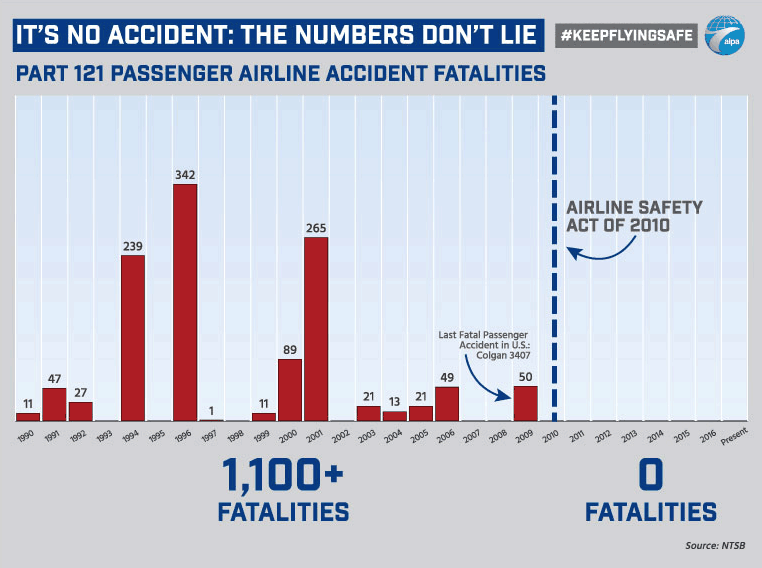When ZERO Wins the Day

Since passage of The Airline Safety and FAA Extension Act of 2010, there have been no passenger fatalities due to an accident of a U.S. FAR Part 121 passenger airline. As the image indicates, this was not the case prior to the act’s implementation. Before enactment of The Airline Safety and FAA Extension Act, there were more than 1,110 passenger airline accident fatalities.
According to data from the NTSB, airline safety improved—so it would be reasonable to believe that this rule would never be in danger of being rolled back. Right?
Unfortunately, instead of focusing on changes to fundamental issues associated with their business models, special-interest groups fixated on airline profit want to weaken standards by claiming that these rules are causing a pilot shortage. They claim, among other things, that the additional first officer qualification and pilot training requirements mandated by Congress discourage potential airline pilots and are the cause for service cuts to rural communities.
But if you really study and dive into the numbers, the data also show that airlines make operational decisions based on the profitability of each route. And past practice proves that if you pay airline pilots commensurate with their training and experience, not only will you get qualified candidates but also a robust profession of future aviators. In fact, the FAA is issuing nearly twice the number of airline transport pilot certificates than the expected need for new pilots to cover estimated retirements and growth, and the Government Accountability Office recently confirmed that there is no pilot shortage.
The bottom line: Regulations that enhance safety should never be used as the scapegoat for profit. Regulations that have led to the safety record of today should be untouchable by special interests. ALPA will defend against any action that could erode airline safety standards and head off any efforts to introduce unrelated issues as Congress begins the process for FAA reauthorization, which expires on September 30.

